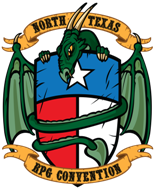I’ve played lots of roleplaying games with lots of different people over the years, and some sessions have definitely stood out as being more memorable than others. I often ask myself: what are the common characteristics of the sessions that evoke the most colorful memories? More specifically, what were the conditions and refereeing styles that helped certain games glow in my imagination more than others? Games where I smelled the ozone when walking through an interdimensional gate or tasted the blood in my mouth after having my abdomen punctured or felt the sinking fear and confusion of a supernatural threat beyond my understanding. I guess
immersion is the word I’m looking for.
I like roleplaying sessions that maximize immersion. I prefer them actually. But I realize a lot of people don’t and that’s okay. I too enjoy gamier games that are largely tactical in nature, and I respect and enjoy the diversity of play styles out there.
With this post I’m not criticizing people that like different play styles, I am simply recommending the common elements associated with the most memorable sessions I've played in. I’ll be the first to say that I don’t always follow all of these recommendations when running my own games – but perhaps I should try to.
1. Don’t use miniatures or battlemats. Most of my favorite sessions as a player have lacked minis and grid maps. Period. This being said, as a referee I use minis and mats frequently because my players specifically request them and I do like the visual and tactile quality of minis. They're fun, what can I say? The minis question is something that tortures my soul endlessly. When will I be able to walk away? Do I want to?
2. Turn off the background music. I’ve always gamed with background music, so it was a revelation to me about a year ago when I realized that the weirdest and most intense gaming moments I can recall have been when the room was completely silent and you could hear a pin drop or dog fart between the referee’s words. Background music seriously diminishes a referee’s ability to control the tone and atmosphere of a roleplaying session. This being said, I still often run games with background music when I am at other peoples’ houses. I don’t want to tell them to turn off their music, ya know?
3. Don’t use a screen. The referee screen creates a barrier between the players and the referee and obscures the referee’s hand gestures. I go back and forth between using my screen - I’d prefer to never use it but it's just too handy for displaying reference tables and hiding maps and minis. Lately I’ve been trying to keep the screen off to my side side so I can take advantage of it without having it sit between me and my players.
4. Sit down and look your players in the eyes. This is simple public speaking advice and it works. Again, this is a rule I often break. I stand a lot because of the whole miniatures thing.
5. Don’t allow distractable players at the table. Players constantly messing around with smartphones or talking about movies or restaurants or other out-of-game stuff are GAME DESTROYERS! Eject these players immediately. Or better yet, don’t invite them in the first place - play
Settlers of Catan or something with them first to see what their attention spans are like.
6. Use your words and your voice to evoke atmosphere. Again, this is no-brainer public speaking advice. I like to think of it as refereeing like you’re presenting an audio book, meaning that you can be expressive without turning the game into an overboard theatrical performance. It’s easy to start a session nicely, but during a long game don’t forget to keep dropping occasional color adjectives (odors, sounds, temperature, etc.) and leveraging the volume, speed, and tone of your words.
7. Think about your opening spiel before the game starts. I do a lot of public speaking as part of my job. I can tell you that in any presentation the first five minutes is crucial for establishing your credibility and tone. In roleplaying games the referee has to ad lib once the adventure starts moving. The opening intro – whether it’s a campaign recap or background spiel for a one-shot – is the only moment a referee can specifically prepare for, and it can dramatically affect how the players will approach the session. Take advantage of this and make the opening as clear and as eloquent as you can. I love playing in games that kick off with a great background monologue from the referee.
8. Don’t look up rules while you’re playing. This wastes time, ruins the momentum of a game, and makes you look bad as a referee. Don’t do it. Make things up if you have to. The only possible exception to this is if you have some tables bookmarked that you can get to immediately. Opening the rulebook before or after the adventure to help with character bookkeeping is fine, of course.
9. Don’t be afraid of interesting NPCs and first-person roleplaying. Sessions that include roleplaying with compelling NPCs are ALWAYS the best and most memorable. A lot of people get real squirmy doing first-person roleplaying, and that’s okay - you don’t want to decrease fun by making players do something they don’t want to do - but if the referee and at least some of the players are into it, first-person interactions add serious color to sessions. It doesn’t have to be a LARP or psychotherapy session, but having at least a few conversations with NPCs with complex or mysterious motivations will make any session more memorable.
Have fun!








